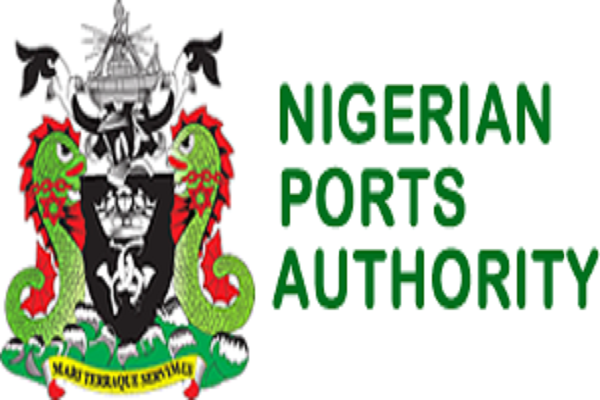From Anthony Nwachukwu, Lagos
With full automation for its expected technology-driven operations, Lekki Deep Seaport will compel a change in business ethics at the Apapa and Tin Can ports with its short cargo dwell time.
The Managing Director of the Nigerian Ports Authority (NPA), Mohammed Bello Koko, said this Tuesday on the sideline of President Muhammadu Buhari’s tour of the facility. He explained that the new port, which will be test-run on completion in September, will create competition among the terminal operators across the nation’s ports.
He disclosed that the port, located on about 90 hectares of land, is planned to have three container terminals, as well as Ship-to-Shore (STS) cranes to enable faster offloading of cargo. It will be the first automated port in Nigeria, which implies speedy cargo clearance, and its commencement will reduce the traffic at Apapa and Tin-Can Island Ports, he added. “Some of the businesses we have lost to other neighbouring West African countries due to draught limitation will be regained,” Koko stated.
“There will be employment creation and increased revenue for government. It will create competition and compel other terminal operators to up their games to reduce cargo dwell time at their terminals.
“Apapa and Tin-Can Island ports have been operating far beyond their capacity, which means that the excess cargoes that have been going there would be diverted to Lekki Port.” Meanwhile, ahead of the expected heavy traffic on the narrow access road that also services Dangote Refinary and a host of others, Koko said the Minister of Transportation, Chibuike Amaechi, has directed the Nigerian Railway Corporation (NRC) to carry out a survey on the possibility of linking the port to the Lagos-Ibadan railway.
For the Executive Secretary, Nigerian Shippers Council (NSC), Mr. Emmanuel Jime, Lekki Deep Seaport will change the face of cargo operation in Nigeria.
“From the point of view of an economic regulator, it has been something we have been looking forward to. We have dreamt that this day would come for a number of very important reasons.
“We have to understand that because of the draft we are going to have at Lekki Seaport and for the first time in our maritime domain, we are going to have the kind of vessels that have never berthed in our ports.
“So, this is the first deep seaport we are having in our country. That perspective alone gives us the comfort and recognition that as far as the economy of scale is concerned, we are going to have a boost in commercial activities in ways that we have never envisaged and experienced.
“We at the Shippers Council are indeed very happy to see this port happening; because of the automation that this port will provide, businesses will be conducted in an efficient way and manner, and service delivery will be cost-effective.”


